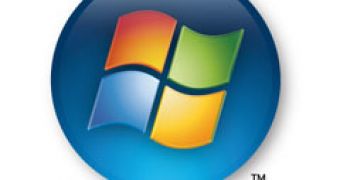$3 Windows XP is bound to face tough competition from Windows Vista, as pirated copies of the latest Microsoft operating system are sold as cheap as $1. As an integer part of the Microsoft Unlimited Potential initiative, the Redmond Company unveiled in mid April the Microsoft Student Innovation Suite. This means that students in emerging geographies will be able to have access to a software bundle including Windows XP Starter Edition, Microsoft Office Home and Student 2007, Microsoft Math 3.0, Learning Essentials 2.0 for Microsoft Office and Windows Live Mail desktop for just $3.
China is one of the markets worldwide where the adoption of Windows Vista has been limping. Reports have indicated that Windows Vista sales in China are insignificant, as Microsoft managed to sell only 244 genuine licenses of the operating system in the first two weeks of general availability. The Redmond Company has denied the legitimacy of the figure, calling such reports inaccurate and speculative, and stating that Windows Vista was met with positive consumer response even in China. However, representatives of Microsoft failed to make public the actual shipments of the operating system in the Asia region.
Research firm Technology Business Research (TBR) concluded that the high price of the operating system along with the inherent hardware resources are responsible for Vista's poor performance in Asia. "TBR believes many Chinese consumers may have chosen either pirated versions of Vista that sell for as little as US$1, or free versions of Linux that are offered free of charge. Although Vista contains enhanced antipiracy technology, press reports indicate that illegal copies of Vista were readily available in China, and piracy remains quite prevalent in the country," stated Allan Krans, Technology Business Research analyst, as cited by ZDNet Asia Mobile.
Commenting on the Student Innovation Suite, Krans failed to see the profitability of the initiative. "While this initiative may well expand the company's installed base in China and other critical economies, Microsoft will not generate significant revenue or profitability by selling a low-end US$3 software bundle. TBR believes Microsoft is still facing the challenge of establishing a business model to harness the growth in Asia-Pacific PC sales, and funneling that growth through to the company's bottom line," Krans added.
But TBR is missing the point. Microsoft is building a new Windows infrastructure with the Student Innovation Suite where currently, there is nothing. Microsoft is first and foremost expanding the operating system market fueling opportunities for future growth. TBR can't see a profit in the $3 suite because there is no profit to be made in emerging markets. However, they won't be emerging markets forever, and then Microsoft will benefit from a foundation of Windows users.

 14 DAY TRIAL //
14 DAY TRIAL //